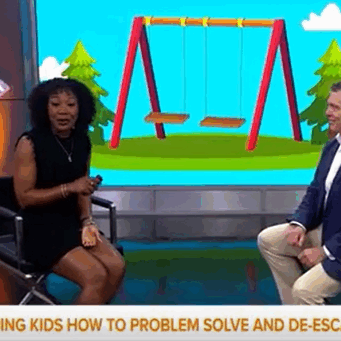
Teaching Children Problem-Solving and Deescalation Skills
Staying calm when you're angry isn’t easy—for adults or kids. But it’s one of the most important skills we can teach our children. Whether it’s managing frustration with a sibling, handling disappointment at school, or dealing with conflict on the playground, kids need tools to manage their emotions and solve problems without blowing up or shutting down.
We often think of emotional regulation as something kids will “grow into,” but that’s not always the case. These are skills that need to be taught—and the earlier, the better.
Start Young
Believe it or not, these conversations can begin as early as toddlerhood. Using simple feeling words like “mad,” “sad,” “glad,” and “afraid” helps children start identifying emotions in themselves and others. At that age, kids are soaking everything in, and they’re watching how adults handle their own feelings, too. Modeling calm responses, even when things don’t go your way, teaches more than any lecture ever could.
Talk, Practice, Model
So how do we help kids develop good deescalation and problem-solving skills?
1. Talk About It:
When your child gets upset, help name the emotion: “It looks like you’re feeling really frustrated.” From there, introduce ways to calm down—like taking a deep breath, stepping away from the situation, or choosing a different activity.
2. Use Teachable Moments:
Everyday disappointments, like not getting their favorite popsicle flavor, can be great practice. Acknowledge their feelings, and talk through other options: “I know you’re upset we’re out of the red one. Let’s pick a different flavor today, and we’ll get red next time.”
3. Be the Example:
Children learn so much from watching the adults around them. When you’re feeling stressed or irritated, try narrating what you’re doing to manage it. “I’m feeling a little overwhelmed right now, so I’m going to take a deep breath before I answer.” That shows kids that it's okay to feel upset—and that there are healthy ways to respond.
Why It Matters
When adults skip these conversations, assuming kids will figure it out on their own, we miss an important opportunity. Conflict, frustration, and disappointment are part of life. Learning how to handle those emotions in healthy ways sets kids up for success in relationships, school, and eventually in the workplace. Left unaddressed, unmanaged emotions can lead to outbursts or even unsafe behavior.
Try This Today
If your child is already home from school and pushing everyone’s buttons, try something simple:
“It seems like you're getting upset—let's both take a deep breath.”
For little ones, make it playful: pretend to squeeze oranges and then shake off the juice. Ask them what they wanted to happen and help them put their feelings into words. These small moments of connection can help them feel seen, heard, and supported.
Need More Help?
Sometimes, even as adults, we need help managing our own emotions—and that’s okay. If you're looking for more tools or support, therapists and psychologists at The Center specialize in teaching these exact skills to kids and families.
